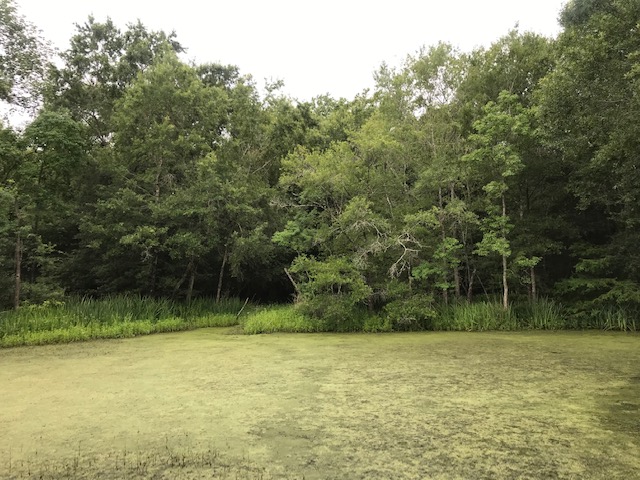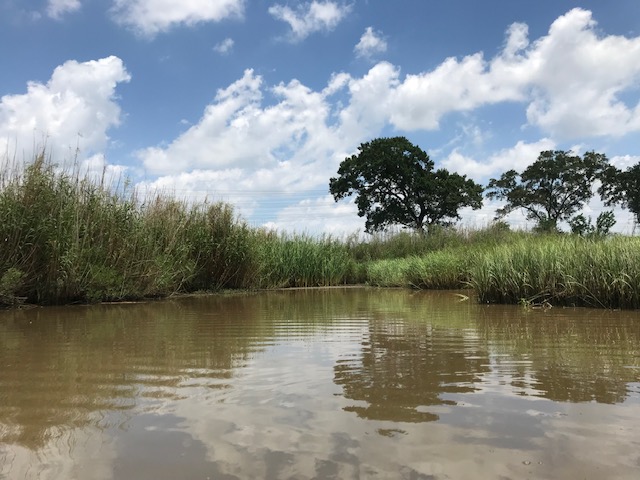Guest post by Rosa Acheson, Bayou City Waterkeeper’s legal intern.
With competing rulemakings over the course of two administrations, and lawsuits nationwide challenging aspects of each rule, the fate of the Clean Water Rule and its protections for Texas’ coastal prairie wetlands remain in flux. Meanwhile, the Harris County Commissioners’ Court is planning to spend more than $2.5 billion on flood control projects through a bond approved by voters last fall. Could developers’ long-time failure to mitigate for wetlands losses undermine the County’s efforts?

Permit Holders’ Failure to Mitigate Wetland Losses Under the Clean Water Act
Even without the Clean Water Rule’s additional protections, federally-protected wetlands across Houston and the Lower Galveston Bay watershed continue to disappear due to local developments’ failure to comply with the Clean Water Act’s mitigation requirements. Harris County alone lost 15,855 acres, or over 30%, of its wetlands from 1992 to 2010. Only some of these wetlands received any form of federal protections, including mitigation required under the Clean Water Act.
Over twelve years, however, developers in the Greater Houston-Galveston area routinely failed to mitigate wetland losses, even when required by the Clean Water Act.
Researchers at Texas A&M AgriLife and the Houston Advanced Research Center analyzed a random sample of 110 development permit records, of the total 7,052 permits issued between 1990-2012 in Brazoria, Chambers, Fort Bend, Galveston, Harris, Liberty, Montgomery, and Waller counties. (For comparison, 2,512 permits were issued in Harris County alone during that time period.)
Less than half had no documented mitigation practices whatsoever. Of those permits requiring any form of mitigation, 61 percent failed to comply with their mitigation requirements.
The failure to mitigate for federally-protected wetland degradation compounds the larger problem of wetland losses across the Lower Galveston Bay watershed. With the rapid loss of thousands of wetland acres, our region’s communities are losing billions of dollars of benefits, including floodwater detention and protection from coastal storm surges.

Harris County’s Efforts to Mitigate Future Flooding
On June 25, 2019, I spoke on behalf of Bayou City Waterkeeper and urged the Harris County Commissioners Court to adopt nature-based solutions—including the restoration of wetlands to absorb floodwaters—as it spends more than $2.5 billion to protect local communities from flooding.
The costly effort undertaken by Harris County underscores the need to protect our remaining wetlands before we lose them, and work to mitigate for their losses. The population across the County is expanding rapidly. As development projects continue, the failure to mitigate will pose a threat to our remaining wetlands, in addition to the flood protection and other benefits they provide.
While the expenditure of the flood bond is greatly needed, it provides a clear lesson: we must protect our natural systems now, which offers numerous co-benefits to local communities, so that we can spend less to help people recover from future storms later. As a Gulf Coast city, it is critical we protect our wetlands and encourage mitigation, to ensure the best quality of life for residents in the Houston-Galveston region for years to come.
Rosa Acheson is an intern with Bayou City Waterkeeper and rising second-year student at Tulane Law School in New Orleans, Louisiana. Rosa is the President of the Tulane Environmental and Energy Law Society and is a 2018 fellow of the Loyola University Institute for Environmental Communication. A longtime water enthusiast, Rosa plans to pursue a legal career focused on coastal protection and restoration. Read Rosa’s statement to the Harris County Commissioner’s Court here .
